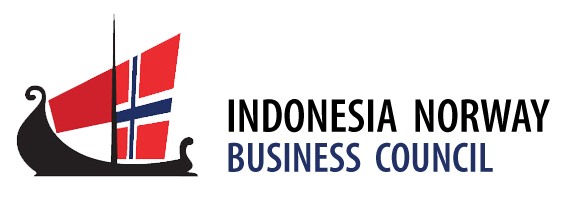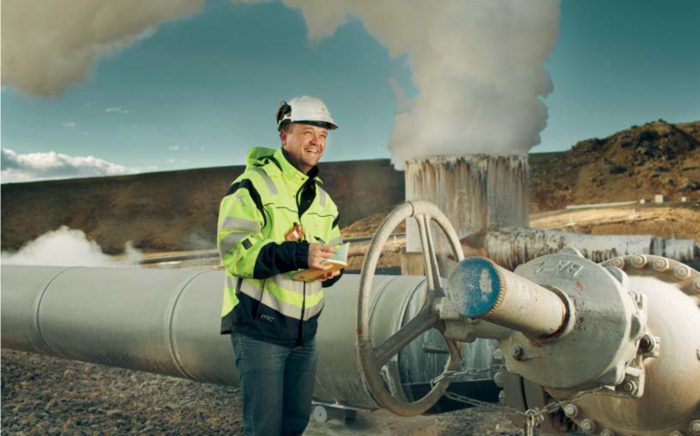The European Free Trade Association
The European Free Trade Association (EFTA) is the intergovernmental organisation of Iceland, Liechtenstein, Norway and Switzerland. It was set up in 1960 by its then seven Member States for the promotion of free trade and economic integration between its members.
EFTA is an experienced trade and investment partner. It has one of the largest networks of free trade and economic partnership agreements in the world, which today spans over 60 countries and territories, including the European Union. EFTA’s objective is to negotiate well-balanced free trade and economic partnership agreements that benefit all partners by creating an open, stable and predictable environment for businesses engaged in international trade and investment. As a sizable market with high purchasing power, EFTA has a reputation as a reliable long-term trading and investment partner. The EFTA States together constitute the world’s twelfth largest merchandise trader and seventh largest trader in commercial services. Over the past ten years, EFTA’s merchandise trade has grown at a faster rate than world trade. This has been the case for both imports and exports. EFTA’s network of trade agreements has made this possible by providing a solid basis for continued trade expansion for both the EFTA States and their partners.
EFTA-Indonesia: a beneficial and complementary partnership
The complementarities between the Indonesian and EFTA economies are significant and will be harnessed more effectively by concluding an IndonesiaEFTA Comprehensive Economic Partnership Agreement (IE-CEPA). The deepening of economic relations has the potential to create opportunities and further growth in sectors of mutual economic interest in line with the Indonesian Government´s priorities – land and maritime infrastructure, electronics, energy, textiles and seafood, to name but a few. An IE-CEPA will open up for greater flows of foreign direct investment from the EFTA States, stimulating the economies of both EFTA and Indonesia by spurring the transfer of technologies and job creation as well as fostering Indonesia´s competitiveness visá-vis the Association of Southeast Asian Nations (ASEAN) (see testimonials regarding cooperation on pages 8 – 11). The preferential tariffs granted under an IE-CEPA will allow Indonesian exporters to maintain strong access to the European markets for their products, independently of the autonomous system of GSP (see box). With the EFTA States serving as a hub for many companies engaged in business operations throughout the European market, Indonesia will indeed benefit from opportunities resulting from EFTA’s extensive trade flows with the European Union, as well as with the markets of EFTA’s other free trade partners worldwide. The rate of annual growth in trade between Indonesia and the EFTA States has on average been 9%, whereas Indonesian exporters have benefited the most, with Indonesia´s exports to EFTA growing annually by 11%, making EFTA an everexpanding market with great possibilities for Indonesia. An IE-CEPA will also provide a framework for cooperation and exchange of know-how in various fields, from which all partners can benefit. For Indonesia, technical cooperation in areas where the EFTA States have developed expertise, such as manufacturing, maritime transport and power generation (e.g. geothermal), can enhance business competitiveness.
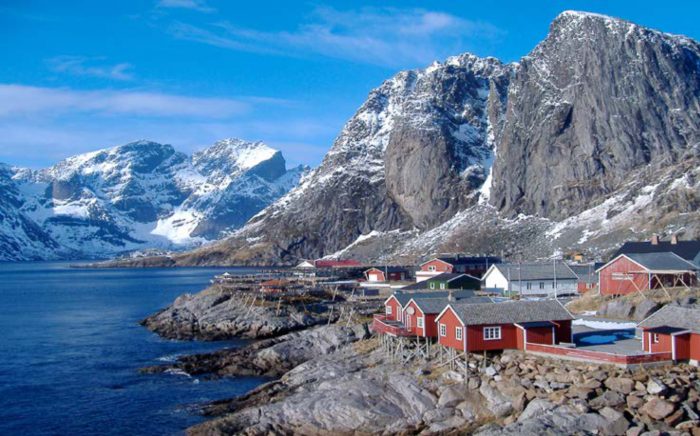 Norwegian-Indonesian fisheries cooperation
Norwegian-Indonesian fisheries cooperation
Indonesia and Norway both have a long tradition as fisheries nations, and this is naturally a key area of cooperation. Starting with a letter of intent between the Norwegian Ministry of Foreign Affairs and the Indonesian Ministry of Marine Affairs and Fisheries (MMAF) in 2006, the two countries have had an active bilateral fisheries programme in place since 2010, focusing on both the management of wild fish stocks and marine aquaculture. Indonesia has the world’s largest unexploited sea area resources suitable for marine aquaculture. Based on its experience in salmon production especially, Norway is sharing knowledge on how to select sites for environmentally sustainable fish farming, on fish health and disease diagnostics, and on best practice in the management and operation of marine fish farms. Some of the assistance goes towards helping to develop good aquaculture practices at MMAF’s demonstration fish farm in Batam Marine Development Centre, which in turn provides know-how and technical assistance to local fish farmers in Batam
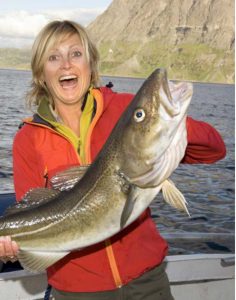 Two-thirds of Indonesia’s area are marine waters inhabited by fish stocks that can be harvested sustainably at 6.5 million tons per year. However, the majority of these fish stocks are over-exploited, which threatens biodiversity and sustainability. Good fisheries governance and resource management are an essential basis for Indonesia to be able to maintain a sustainable fisheries sector and prevent illegal, unreported and unregulated (IUU) fishing. Through the fisheries programme, Norway contributes with capacity building on how to carry out stock assessments and how to use the data collected to develop sound fisheries policies.
Two-thirds of Indonesia’s area are marine waters inhabited by fish stocks that can be harvested sustainably at 6.5 million tons per year. However, the majority of these fish stocks are over-exploited, which threatens biodiversity and sustainability. Good fisheries governance and resource management are an essential basis for Indonesia to be able to maintain a sustainable fisheries sector and prevent illegal, unreported and unregulated (IUU) fishing. Through the fisheries programme, Norway contributes with capacity building on how to carry out stock assessments and how to use the data collected to develop sound fisheries policies.
Swiss – Indonesia cooperation on sustainable cocoa production
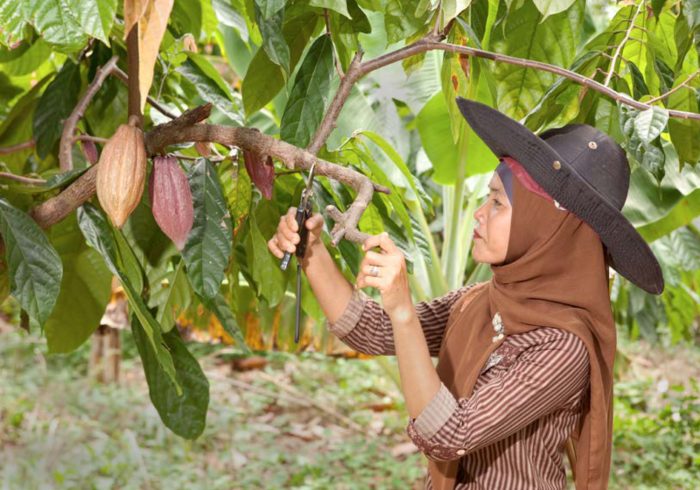
The Swiss-supported Sustainable Cocoa Production Programme (SCPP) is well designed with the interests of smallholder cocoa farmers in mind. Since the programme started in West Sulawesi Province, the SCPP has provided farmer-field-school training to some 2 000 farmers in the Mamuju and Majene districts. The training has contributed to improving farmers’ cocoa production and overall welfare because the SCPP focuses not only on good agriculture practices, but also on improving the nutrition of farmer households and farmers’ knowledge of financial management and access to finance.
Harnessing the power of geothermal energy: a win-win scenario for Indonesia and Iceland
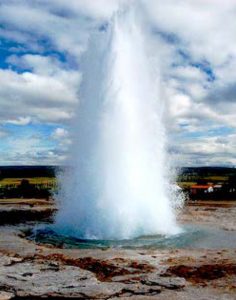 As volcanic island states, both Indonesia and Iceland are blessed with an abundance of clean, renewable geothermal energy. Cooperation in this important sector has grown in recent years and reached a milestone with the signing of a Memorandum of Understanding in 2007. The growing partnership includes technology research, investment, project development and training. Numerous geothermal experts from Indonesia have already completed the United Nations University Geothermal Programme (UNU GTP) in Iceland, which allows them to bring that experience back home to further develop the sector. Prospects for further cooperation are significant and could be critical for Indonesia to develop its geothermal sector further, as the need for experts will increase exponentially with more geothermal power plants coming into operation.
As volcanic island states, both Indonesia and Iceland are blessed with an abundance of clean, renewable geothermal energy. Cooperation in this important sector has grown in recent years and reached a milestone with the signing of a Memorandum of Understanding in 2007. The growing partnership includes technology research, investment, project development and training. Numerous geothermal experts from Indonesia have already completed the United Nations University Geothermal Programme (UNU GTP) in Iceland, which allows them to bring that experience back home to further develop the sector. Prospects for further cooperation are significant and could be critical for Indonesia to develop its geothermal sector further, as the need for experts will increase exponentially with more geothermal power plants coming into operation.
TECHNOLOGICAL INNOVATION FROM LIECHTENSTEIN AT WORK IN INDONESIA
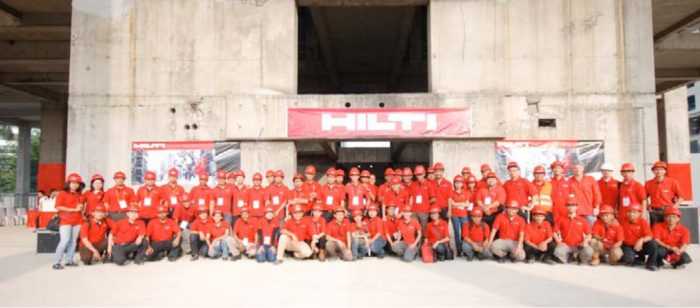 In Indonesia, Hilti AG is fully represented by PT Hilti Nusantara, established in 1996 and employing around 120 Indonesians. Hilti operates in major cities in Indonesia, supplying high quality and innovative products and services primarily to the construction market and energy sector. Two-thirds of Hilti’s employees work directly with our customers, providing advanced solutions to meet their needs. We also support our customers with value adding services, such as specification design and training. In major cities of Indonesia, residential and commercial buildings, as well as civil infrastructure, are in high demand. These are some of the highest growth sectors in Indonesia. With its high construction output, Indonesia provides significant growth opportunities for Hilti. Hilti is well known for its cutting-edge technology which can help increase the productivity of construction projects. With the Comprehensive Economic Partnership Agreement between EFTA and Indonesia, PT Hilti Nusantara will leverage more capacity to bring in and introduce this cutting-edge technology to the Indonesian market in a more timely manner and cost-effective fashion.
In Indonesia, Hilti AG is fully represented by PT Hilti Nusantara, established in 1996 and employing around 120 Indonesians. Hilti operates in major cities in Indonesia, supplying high quality and innovative products and services primarily to the construction market and energy sector. Two-thirds of Hilti’s employees work directly with our customers, providing advanced solutions to meet their needs. We also support our customers with value adding services, such as specification design and training. In major cities of Indonesia, residential and commercial buildings, as well as civil infrastructure, are in high demand. These are some of the highest growth sectors in Indonesia. With its high construction output, Indonesia provides significant growth opportunities for Hilti. Hilti is well known for its cutting-edge technology which can help increase the productivity of construction projects. With the Comprehensive Economic Partnership Agreement between EFTA and Indonesia, PT Hilti Nusantara will leverage more capacity to bring in and introduce this cutting-edge technology to the Indonesian market in a more timely manner and cost-effective fashion.
